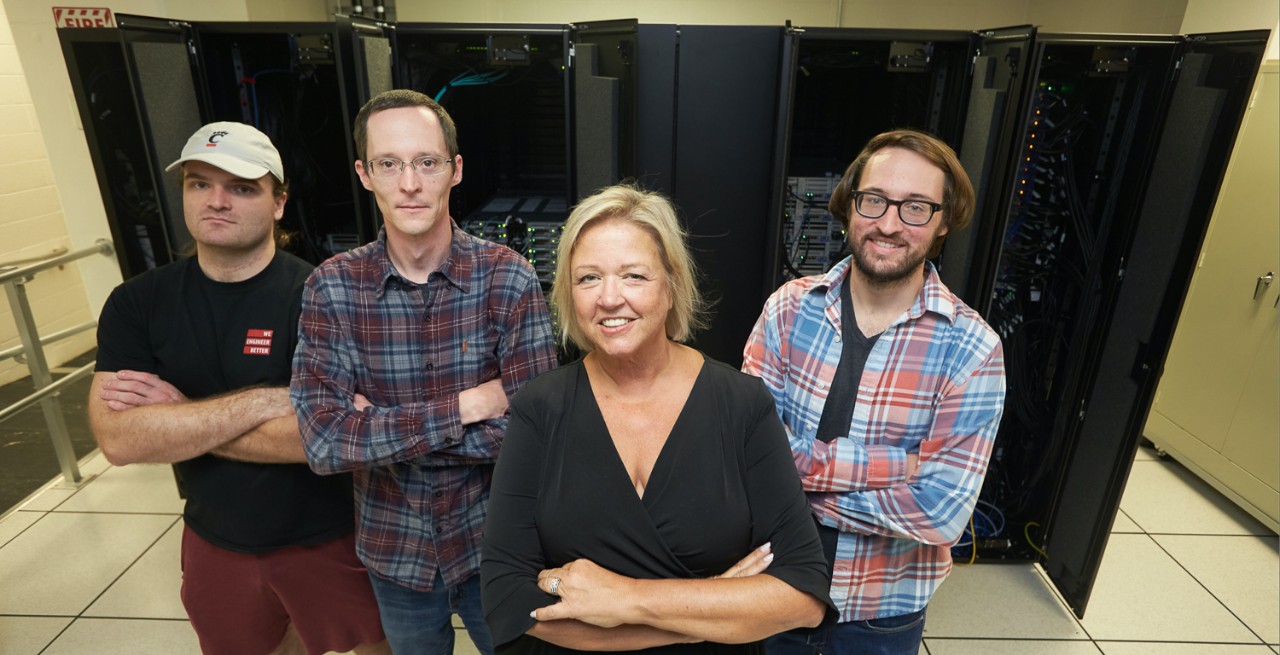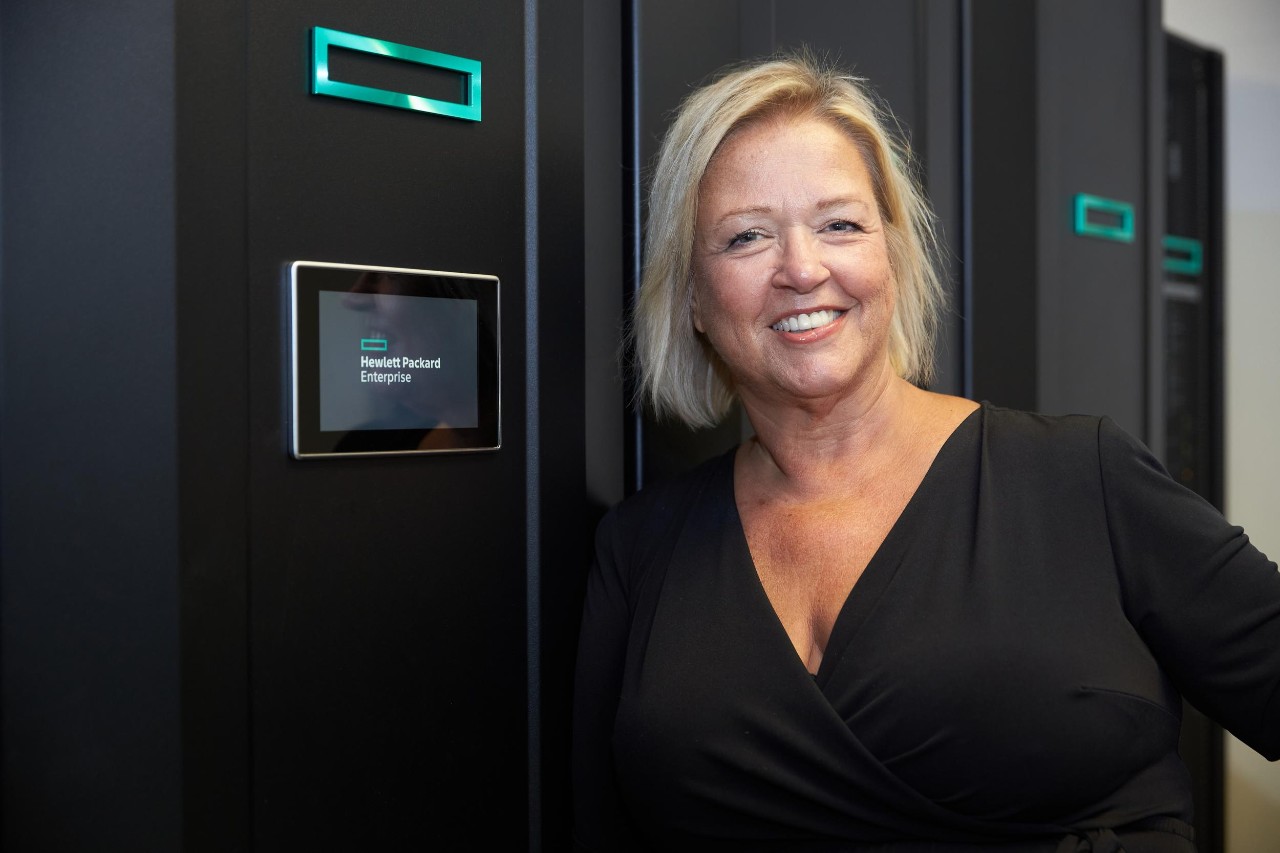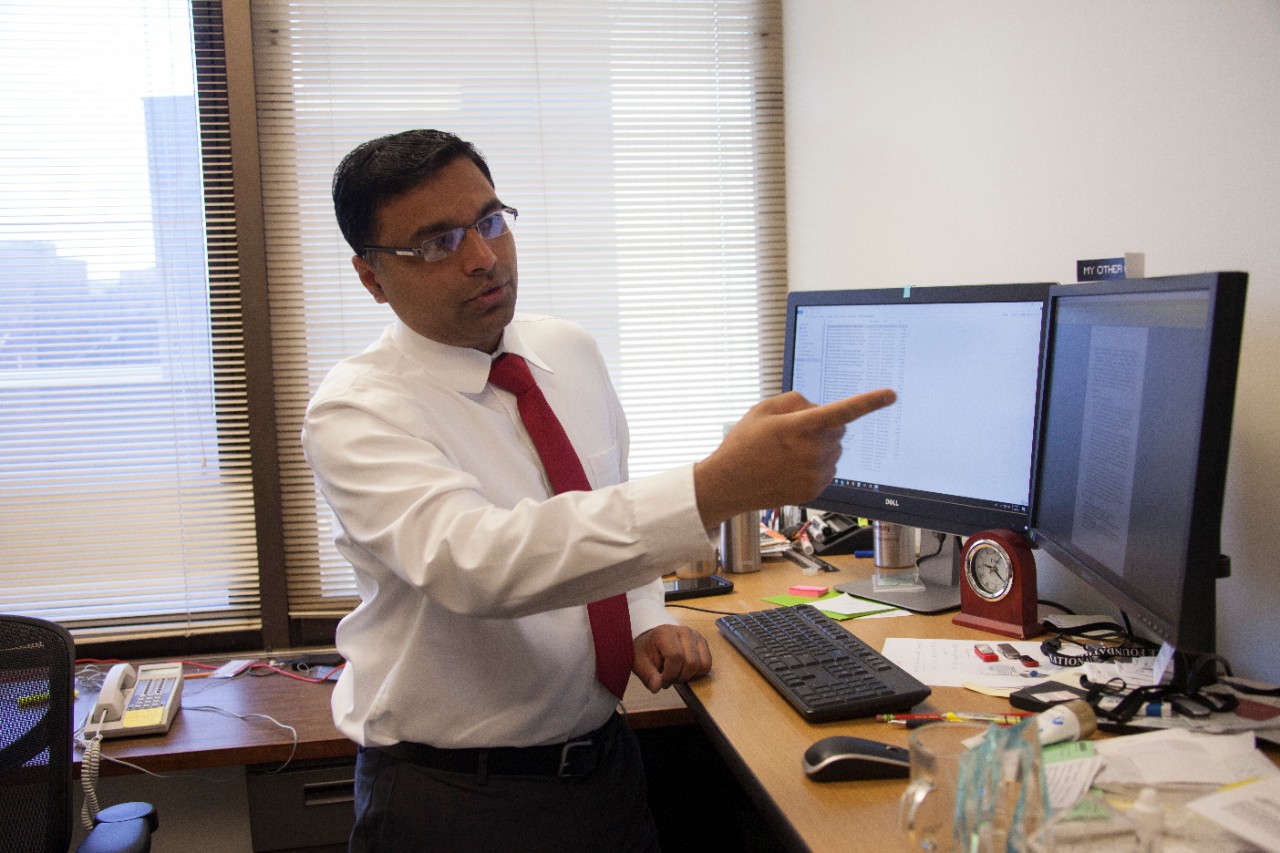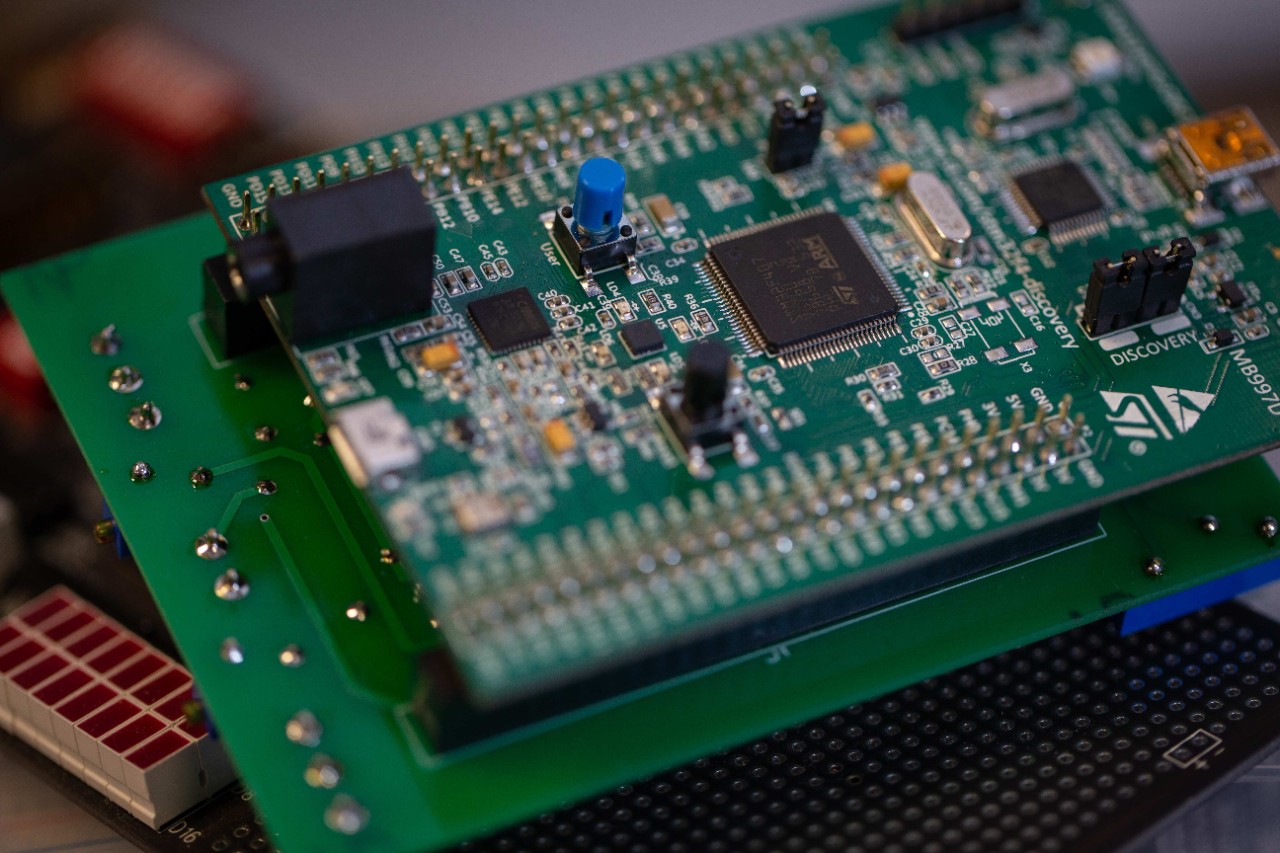
Meet UC’s big-data problem solvers
Advanced Research Computing Center at Digital Futures helps researchers across colleges
The University of Cincinnati's Advanced Research Computing Center is advancing supercomputing across the research enterprise.
A major objective of Research 2030, UC’s 10-year plan for research, is advancing research with impact at scale.
“The UC Office of Research is helping faculty, students and staff across UC scale up their research to maximize its impact,” UC Vice President for Research Patrick Limbach said.
“Through our over $3 million in investments in tech-savvy staff, upgrades to UC’s Data Center and cutting-edge equipment, the Advanced Research Computing Center is propelling research at UC.”

Jane Combs stands in front of a supercomputer at the UC Data Center on the medical campus. Photo/Andrew Higley/UC Marketing + Brand
The center's supercomputer is housed in UC’s Data Center in the Medical Sciences Building of the College of Medicine. The UC Office of Research has partnered with Digital Technology Solutions to accelerate scientific discovery, secure researcher’s data and provide top-notch services to both the end-users and the equipment itself.
“Increasingly, researchers at UC are manipulating and interpreting unimaginably large amounts of data,” Associate VP for Research Jennifer Krivickas said.
“Having expert, end-user support staff both in the UC Office of Research and Digital Technology Services is securing our experts' data and saving them time and money.”

UC College of Engineering and Applied Science Associate Professor Prashant Khare serves as the faculty director for UC's Advanced Research Computing Center. Photo/Ravenna Rutledge/UC
The center also provides data storage, which is no small consideration at a Research 1 university. The center also provides training on requested technology such as its high-performance computing apprenticeship program. The center offers three workshops every term on topics such as Introduction to Linux and optimization techniques for high-performance computing.
In 2023, the computing center's staff established a new service center to provide UC faculty, students and even external customers with expert facilitation and instructional, consultative and storage services at a fraction of the rate of other services.
Why use the Advanced Research Computing Center? Because time is a critical factor in research due to resource constraints, the dynamic nature of knowledge, competition, technological advancements, urgency in addressing certain issues, career-related considerations and more. Expediency is essential.
“The ARCC's equipment and staff help researchers access and use all the computational tools available which saves a ton of time, opens up new research avenues, and equips them with extremely valuable and highly sought-after skills in the marketplace,” said Prashant Khare, a professor in UC's College of Engineering and Applied Science and academic director of the center.
These days everyone is doing power computing in academia, industry and the government. Through its apprenticeship program and services, the Advanced Research Computing Center is helping to develop the next generation of leaders in important fields.
Prashant Khare, UC's Advanced Research Computing Center
In 2018, Khare was the recipient of a National Science Foundation award through its major research instrumentation program which allowed UC to establish the center.
“These days everyone is doing power computing in academia, industry and the government. Through its apprenticeship program and services, the Advanced Research Computing Center is helping to develop the next generation of leaders in important fields,” Khare said.
More recently, Combs, the center's administrative director, teamed up with other universities in the region on an NSF proposal and was awarded more than $1 million to expand the regional expertise in artificial intelligence, machine learning and cloud computing.
This equipment and funding supports equipment, staff and the computing center's apprenticeship and instructional programs, which offers three workshops every term on topics such as Introduction to Linux and optimization techniques for high-performance computing. The center also partnered with sponsors NVIDIA, Hewlett Packard Enterprise, and Procter & Gamble Co. to organize and host its first rapid research challenge/hackathon in winter 2024 exploring topics important to them such as large language models, generative AI and more.

UC's Advanced Research Computing Center supports faculty, students and research staff across the entire campus as they increasingly pursue artificial intelligence, machine learning and big data research. Photo/Andrew Higley/UC Marketing + Brand
The computing center fills a skills gap for departments across campus, Khare said. Even in his own research in propulsion systems, he has found the Advanced Research Computing Center to be indispensable and acknowledges it in his published research papers.
“The ARCC is a great way for researchers to have not only their data and computations in one place but also different versions of the software they’re running,” Combs said.
But perhaps the biggest asset of the Advanced Research Computing Center is its people, Khare said.
“We scientists are problem-solvers and we’re notorious for trying to figure everything out for ourselves. However, the strengths of the ARCC is that UC's Digital Technology Solutions secures your data and won’t sell your data, it’s far less expensive than other options, the staff are here at UC to help us and importantly they work with an array of big-data problems every single day and they can help us figure things out in 30 seconds where it would have otherwise taken a researcher five hours. And that’s a big benefit that we don’t talk enough about,” Khare said.
Featured image at top: Members of UC's Advanced Research Computing Center are available to help students and faculty across campus with their projects. Photo/Andrew Higley/UC Marketing + Brand
Next Lives Here
The University of Cincinnati is classified as a Research 1 institution by the Carnegie Commission and is ranked in the National Science Foundation's Top-35 public research universities. UC's graduate students and faculty investigate problems and innovate solutions with real-world impact. Next Lives Here.
Related Stories
WCPO: UC-backed startup aims to use AI to detect heart disease
March 4, 2024
A University of Cincinnati-backed startup is developing explainable artificial intelligence to better diagnose coronary artery disease risk in women, WCPO reported.
Spectrum News: UC-backed startup hopes to save lives with AI
April 4, 2024
By combining existing mammograms with its artificial intelligence, a University of Cincinnati-backed startup hopes to detect heart disease and save lives, Spectrum News reported.
How can your car make roads safer?
November 20, 2023
The University of Cincinnati will work with Honda Motor Co., infrastructure engineering firm Parsons Corp., consulting firm i-Probe and the Ohio Department of Transportation to demonstrate that new cars can help evaluate roads.